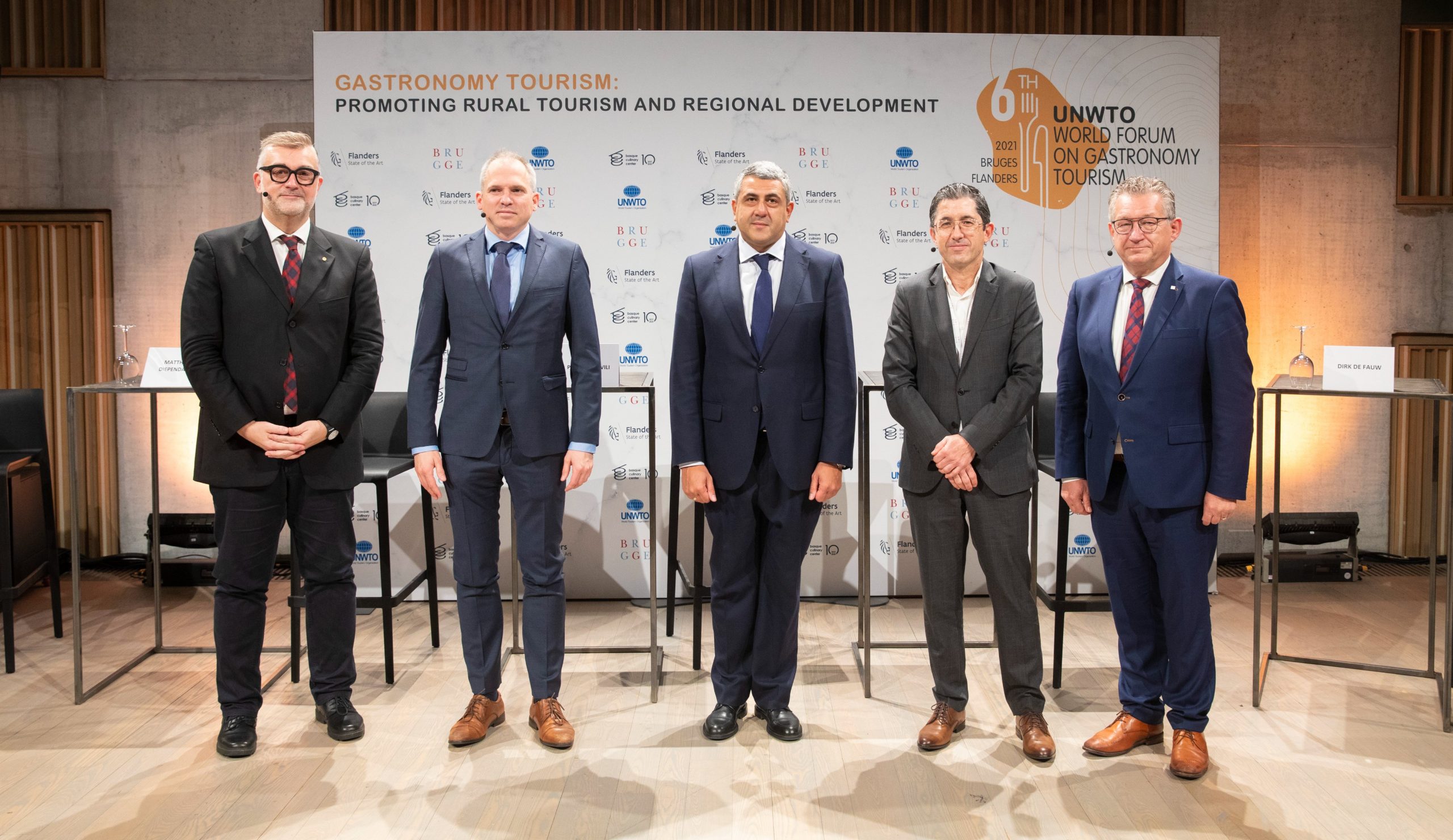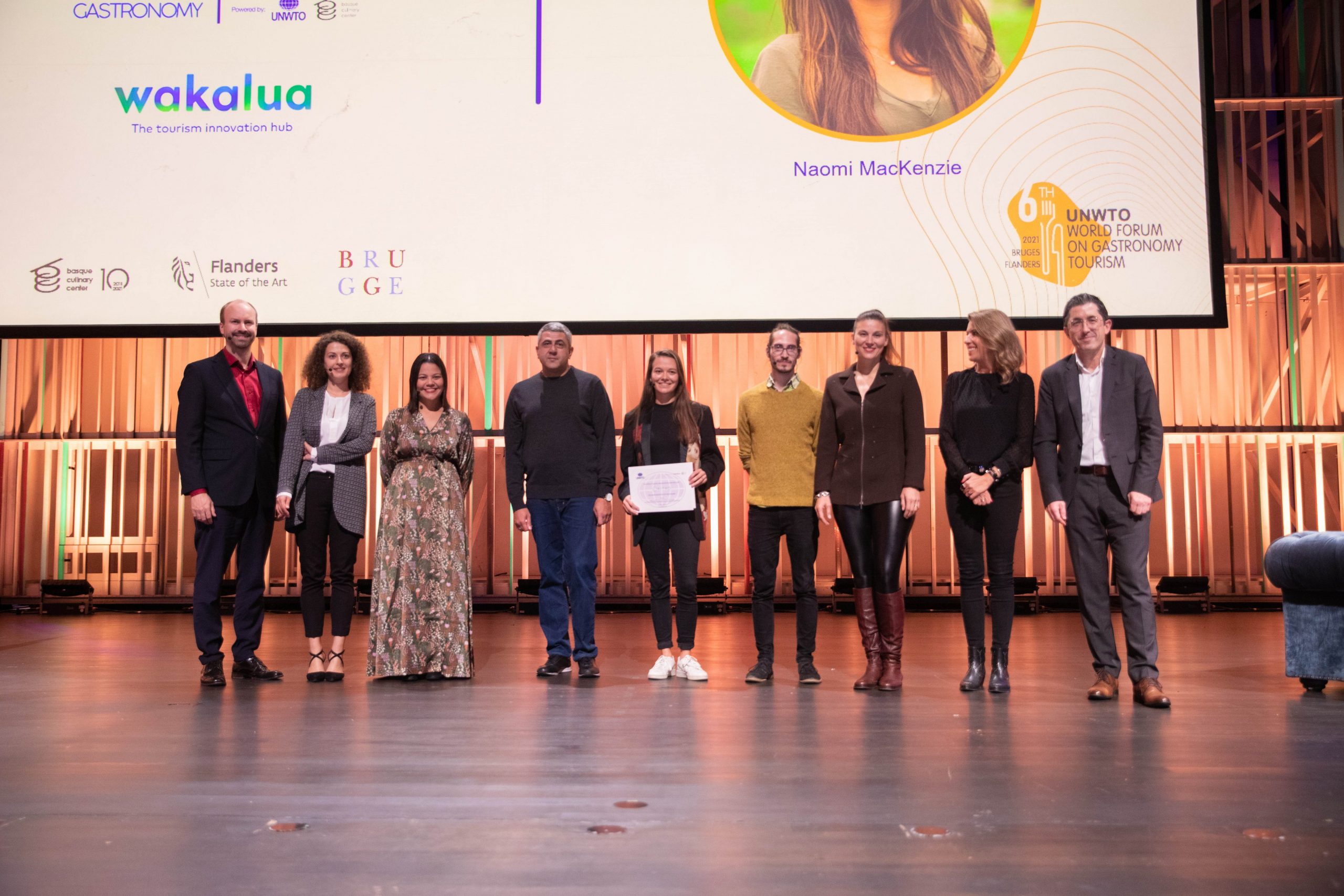The 6th edition of the UNWTO World Forum on Gastronomy Tourism, held in Bruges, Flanders (Belgium, 31 October to 2 November), focused on the sector’s unique ability to support rural businesses, create jobs and protect and promote culture and heritage. For the first time, the Forum, organized by UNWTO and the Basque Culinary Center (BCC) included a special session dedicated to African Gastronomy, recognizing its potential as a tool of socio-economic development and for helping destinations across the continent enhance their distinct branding and market themselves to new audiences. The session concluded with the signing of a Memorandum of Understanding between UNWTO and Chefs in Africa.
Opening the Forum, UNWTO Secretary-General Zurab Pololikashvili said: “Gastronomy tourism adds vitality to rural communities, supports small, local food producers and strengthens their position in the market contributing to add value to the tourism experience while promoting the preservation and development of local produce and know how.”

Joxe Mari Aizega, General Manager of the Basque Culinary Center, said: “Gastronomy tourism offers a unique opportunity to promote economic growth of rural communities. It is a way of involving the various agents of the gastronomy value chain, and promoting economic and social development from farm to table.”
Flemish Minister Matthias Diependaele said : “With the gastronomy and tourism sectors at a turning point, we believe it is necessary to move towards gastronomy tourism with added value for our destinations, our residents, our local entrepreneurs as well as the visitors. We are happy to have come together with leaders from all over the world to exchange experiences and get inspired to poise the way towards a sustainable future for the gastronomy tourism sector.”

The Mayor of Bruges Dirk De fauw added: “I am very honoured that our city was chosen to be the host city for this important congress on tourism gastronomy. Even before the coronavirus pandemic, Bruges opted for a sustainable tourism story in which we explicitly opt for ‘better’ rather than for ‘more’. A positive and sustainable story which we write together with our visitors, residents and entrepreneurs.”
To ensure that gastronomy tourism can grow as a driver of rural development, participants recognized the need to strengthen coordination between tourism, agricultural and rural development policies at the global, national, and local levels. Alongside this, the forum also focused on best ways of designing gastronomy tourism strategies and practices that ensure the sustainable use of resources, the promotion of local products and know-how, and on responsible consumption.
Also in Bruges, UNWTO showcased the talented entrepreneurs who are rising to the challenges posed by the Sustainable Development Goals through innovation along the gastronomy tourism value chain. Selected startups focused on taking climate action, reducing waste, creating sustainable communities, protecting ecosystems, amongst others, pitched their ideas to the Forum’s participants. The startups included Faroo (Italy), Rutopia (Mexico), Apadrina un Olivo (Spain), Katla Aero (Sweden) and KITRO (Switzerland).
The next edition of the Forum will be held in Nara, Japan in 2022.
Click here to view the photo album







